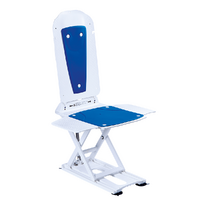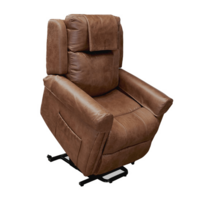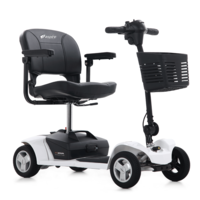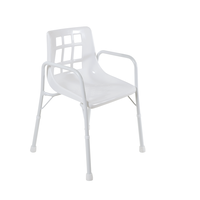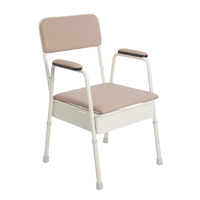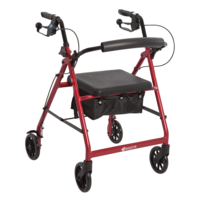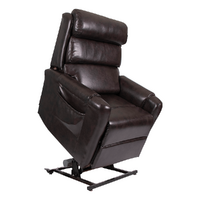Broaching The Topic of Ageing and Care with Your Parents
Watching a loved one age and gradually lose their independence can be a difficult and challenging process to go through, especially if that loved one is a parent. However, facing the complicated role-reversal of becoming a caregiver to your own parents is something many of us go through. As such, it’s essential to know how to broach the topic of ageing and care with a loved one.
In this guide, we’ll take you through how to identify if a senior needs help and how to respectfully discuss the issue with them. Although there is no simple solution to broaching the topic of ageing, this guide aims to make the process easier and more comfortable for both yourself and your loved one.
Signs that someone may need help
Ageing is a slow and continuous process, so knowing when to address the topic with loved ones can be challenging. However, there are many signs that can act as useful guides on the state of your loved one’s cognitive and physical capacities.
Keeping an eye out for these signs and monitoring your loved one’s activities and behaviours can help you to recognize when it’s time to discuss ageing.
Common Signs that Seniors Need Help:
- House isn’t as tidy as it used to be
- Out of date food in the fridge
- Sudden loss of weight
- Bruises from possible falls
- Regularly forgetting dates and appointments
- Not recognising family members over the phone
- Repetitive conversations
- Overfeeding or forgetting to feed pets
- Bills and letters remaining unopened
- Bumps and scrapes on the car
- Medications not being taken or prescriptions not being refilled
- Not changing clothes or personal hygiene issues
- Getting lost in previously familiar areas
- Hoarding
- Using walls and furniture to help move about the house
- Drinking less water, particularly in the afternoon/night, which can indicate an incontinence concern
- Struggling with daily chores
Ageing concerns inside the home
The diminished capabilities that come along with ageing can be cause for concern, especially for seniors who live alone. Although independance is often highly important to the self-esteem of seniors, it must be balanced with their safety and quality of life.
For seniors who live alone, there are a variety of safety and hygiene concerns. To ensure your loved one is coping with life at home, be sure to check in on them regularly. If you can not check in on them yourself, arrange someone else to do it for you. When there, be sure to monitor your loved one’s physical and mental capabilities and check for the any commons signs around the house that help is required.
If you have any particular concerns, such as potential falls or incontinence issues, broach the topic carefully with your loved one to find the right solution. The answer could be as simple as installing safety rails in the home or may mean moving into a care facility.
Ageing concerns for outside the home
Issues with ageing don’t just happen around the home. Outside the house, there can also be cause for concern. In particular, driving can be an important issue to discuss with seniors, especially if you are concerned about their safety or the safety of other road users. However, many people find it hard to relinquish their license, so how you broach the topic is essential.
Even if your loved one doesn’t drive, their safety and wellbeing when out and about can still be of concern. As well as the physical challenges of getting around, memory loss and cognitive impairment can lead to seniors becoming lost or confused, even in familiar neighbourhoods.
When to start the conversation
When it comes to discussing ageing with a loved one, it’s important to start the conversation early. Doing so will give you both time to properly prepare for changes and cooperatively plan for the future.
Leaving the conversation to the point where significant problems are already occurring can make discussing ageing more difficult as seniors may feel as if their independence is suddenly being challenged or taken away. However, it’s never too late to start a conversation. If your loved one has had a major fall or you’ve suddenly noticed a change in their capabilities, see it as a sign to begin the conversation.
Before starting the conversation, you may wish to plan what you will say, especially if your relationship with your loved one is complicated. You could also talk to their GP first to seek guidance on how best to care for them and address the topic.
How to open the conversation
Opening up a dialog about your loved one’s condition and care can be challenging. For adult children, it can be confronting to see their parents deteriorating and challenging to talk about certain topics, such as hygiene. For seniors, admitting that they need help or that they aren’t managing as well as they used to can create feelings of insecurity and a loss of independence.
You may want to research what help is available to be more prepared. Money can often be a concern for both seniors who require care and their adult children, so knowing the costs associated with different options, and the government and community support available can help you move the conversation quickly towards solutions.
When it comes time for your discussion, remember that you know how you communicate best with your loved one. With that in mind, have a conversation in private and open a dialog about how they are doing. Ask them questions about how they’re managing and if they would like help. And be mindful of your language, trying to avoid any accusation tones. Then, work together to find a solution that satisfies the both of you.
If your loved one doesn’t want to discuss the topic the first time you bring it up, don’t be discouraged. Instead, give them some time before trying again or consider having someone else talk to them about the issue. Their GP may be the best person to raise specific health or safety concerns with them.
Ageing in place
For some seniors, ageing in place at their home can be an appropriate option. However, it’s important to ensure they are cared for, comfortable, and safe, even if they’re still quite independent.
For many seniors, ensuring their safety and comfort in the home will require mobility and safety aids, such as rails, shower chairs, bedside commodes, walking frames, and lift chairs. Others may also require in-home care or support from outside services.
Aged care facilities
For seniors who are not coping at home, an aged care facility may be the best option. When choosing a facility, be sure to do your research and discuss the options with your loved one.
Broaching the topic of aging and care with a loved one is never easy. But, there are methods for making the process more comfortable for the both of you. If you need help, there are services available that can provide assistance to assess your loved one’s needs and connect them with appropriate support.
Support available
The Commonwealth Home Support Programme (CHSP) is a government-supported program designed to help elderly people stay independent and remain in their homes and communities for longer. The CHSP provides basic home support for older people who need help to keep living independently.
More information can be found here
The Home Care Packages Program is part ot the Australian Government’s continuum of care for older people. The program provides access to a range of ongoing personal services, support and clinical care, from assistance with basic care needs through to high-level help. Assistance is offered on a subsidy basis, with payment assessed based on the individual’s financial capacity.
More information can be found here
For more information on the help available for elderly people, the government’s My Aged Care website provides a number of guides and resources, and can also connect you with support services. The website includes an estimator to help you work out the cost of various assistance packages and care options available to you.
Visit the My Aged Care website here
Discover mobility, safety, and living aids to help your loved one at Mobility HQ

















